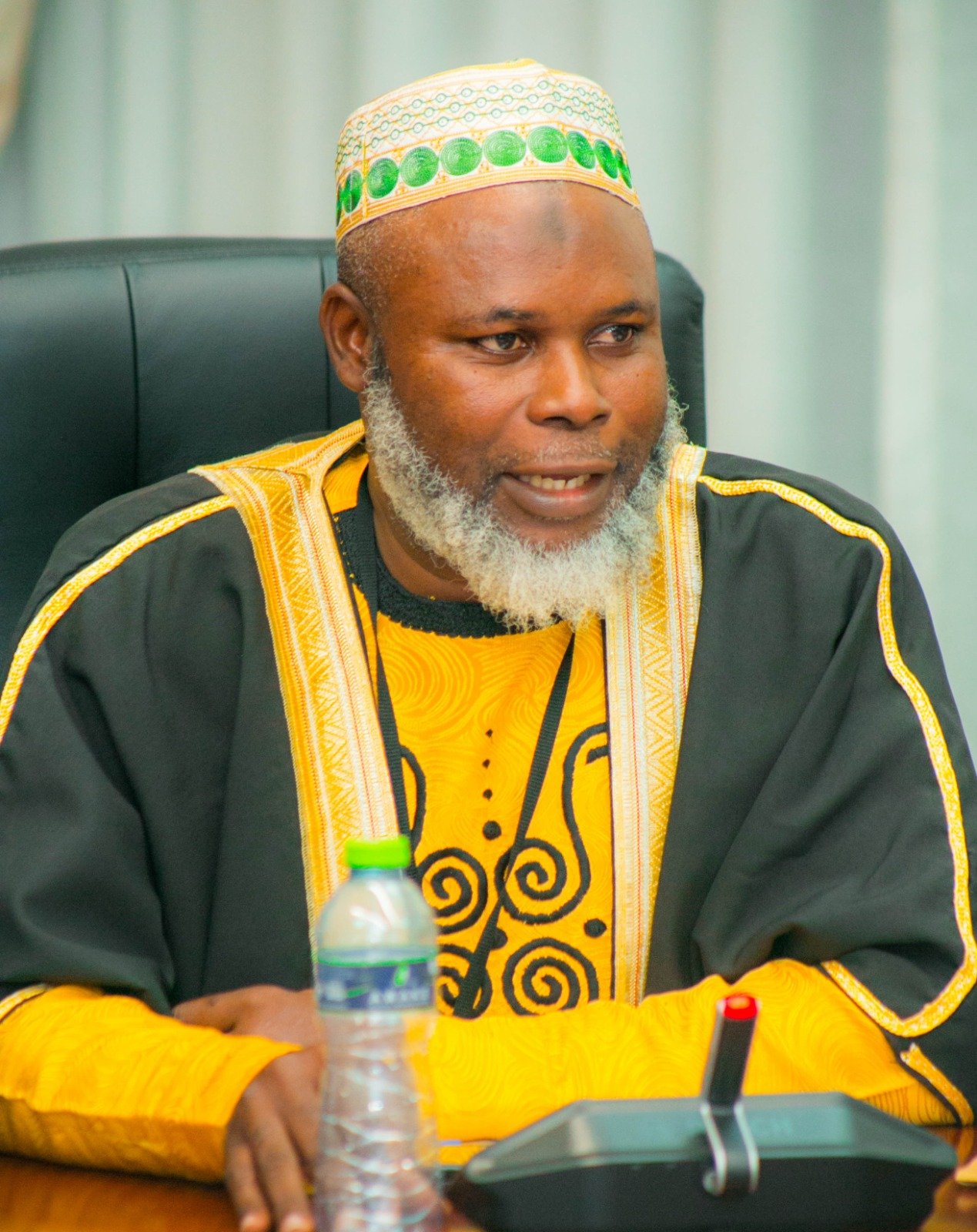Fruitful Living
Testing for genuine baptism in the Spirit

While Peter was still speaking these words, the Holy Spirit came on all who heard the message. The circumcised believers who had come with Peter were astonished that the gift of the Holy Spirit had been poured out even on the Gentile. – Acts 10:44-45.
INTRODCUTION
God’s Word directs and instructs those who believe in and follow Christ to use godly discernment (i.e., wisdom that brings true understanding) and make proper judgements about all things that might appear to be from the Holy Spirit. “Do not believe every spirit, but test the spirits to see whether they are from God” – 1 John 4:1.
The following Biblical principles give guidance when we are trying to determine whether a person who claims or appears to have been baptised in the Holy Spirit has truly had an experience from God.
1. A genuine baptism in the Holy Spirit will inspire us to love, honour and worship God the Father and the Lord Jesus Christ more than before. It is the Holy Spirit who causes love for God to grow in our hearts. “And hope does not put us to shame, because God’s love has been poured out into our hearts through the Holy Spirit, who has been given to us.” – Romans 5:5. But any spiritual experience that draws our attention, prayers, worship or affections toward anything or anyone other than God and the Lord Jesus is not from God.
2. A genuine baptism in the Holy Spirit will make us more attentive to our relationship with the heavenly Father, assuring us that He loves and cares for us as His children. It also will lead to a greater awareness of Christ’s presence in our daily lives. But any spiritual experience that does not result in a deeper friendship with Christ and a deeper awareness of God’s care and companionship is not from God.
3. A genuine baptism in the Holy Spirit will cause a greater love for and appreciation of God’s Word. The Spirit of truth inspired those who wrote God’s Word to write exactly what God wanted to communicate, and He will deepen our love for and devotion to the truth of God’s Word. But any spiritual experience that does not increase our hunger to read and obey God’s Word is not from God.
4.A genuine baptism in the Holy Spirit will deepen our love and concern for other followers of Christ. True Christian companionship and community must be based on unity that comes from the Spirit. But any spiritual experience that hinders or lessens our love for those who truly aim to follow Jesus as the authority in their lives is not from God.
5.A genuine baptism in the Holy Spirit must be preceded by true repentance (admitting and turning from our own sinful way and surrendering to Christ) and by faithful obedience to Christ. “Peter replied, “Repent and be baptised, every one of you, in the name of Jesus Christ for the forgiveness of your sins. And you will receive the gift of the Holy Spirit.” – Acts 2:38.The spiritual effects and influence of the baptism in the Spirit will continue only as long as we allow God’s Spirit to keep purifying our lives, developing our character and preparing us for God’s purposes. This includes depending on the Holy Spirit to lead us and to help us overcome the sinful tendencies of our human nature – to “put to death the misdeeds of the body” and to be “led by the Spirit of God”. But any person who has not accepted Christ’s forgiveness and been set free from sin (being led by the desire of his or her own sinful nature) cannot experience a true baptism in the Holy Spirit. Any power that appears to be on that person is from another source and is likely the deceptive activity of Satan.
6.A genuine baptism in the Holy Spirit will increase our dissatisfaction with nay activities that offend God and defy His spiritually pure nature. It will also turn us from the selfish pursuit of earthly riches and reputation. But any spiritual experience that allows the acceptance of ungodly beliefs behaviours and lifestyles that are common in the world is not from God. This is because the true followers of Christ “have not received the spirit of the world but the Spirit who is from God”.
7.A genuine baptism in the Holy Spirit will give us a greater desire and power to spread the message about forgiveness, spiritual salvation and the gift of eternal life through faith in Jesus Christ. But any spiritual experience that does not result in a greater desire to see others come to know Christ personally is not from God.
8. A genuine baptism in the Holy Spirit will cause us to be more open and receptive to the Spirit’s work and purposes within the church as a whole (among all Christ’s true followers) and in our individual lives. This includes the exercise of spiritual gifts (special God-given abilities for the purpose of honouring Him and benefiting others), particularly the gift of speaking in tongues, which is presented in Acts as the initial outward sign of the baptism in the Holy Spirit. “All of them were filled with the Holy Spirit and began to speak in other tongues as the Spirit enabled them.” – Acts 2:4
9.A genuine baptism in the Holy Spirit will cause us to be more conscious of the work, guidance and presence of the Holy Spirit in our daily lives. After being baptised in the Spirit, followers of Christ were continually conscious of the Spirit’s presence power and guidance. But any spiritual experience that does not increase our awareness of the Spirit’s presence and strengthen our desire to follow His leading is not a genuine experience of God’s Spirit. In addition, anything that does not reinforce our goal to please God, to accomplish His purpose for our lives and to live in such a way that we promote His work in every respect is not from God. “And do not grieve the Holy Spirit of God, with whom you were sealed for the day of redemption.” – Ephesians 4:30; “Do not quench the Spirit” – 1 Thessalonians 5:19
COME, HOLY SPIRIT, HEAVENLY DOVE – MHB 292
1 COME, Holy Spirit, heavenly Dove,
With all thy quickening powers;
Kindle a flame of sacred love
In these cold hearts of ours.
2 In vain we tune our formal songs,
In vain we strive to rise;
Hosannas languish on our tongues,
And our devotion dies.
3 And shall we then for ever live
At this poor dying rate,
Our love so faint, so cold to Thee,
And Thine to us so great!
4 Come, Holy Spirit, Heavenly Dove,
With all Thy quickening powers;
Come, shed abroad a Saviours love,
And that shall kindle ours.
Isaac Watts – 1674 – 1748
Source: Fire Bible
Stay blessed!
For further inquiries, please contact us on Tel Nos. 0302-772013 or 0268130615
Email: saltnlightministries@gmail.com
Website: saltandlightministriesgh.org
Fruitful Living
Institution of Marriage in Islam (Pt.3)

Regarding sexual intimacy, it is also prohibited for a wife to demand money or gifts before allowing her husband to engage in sexual relations. Islam views this as a form of exploitation and sin. A marital relationship must be based on mutual love, respect, and affection rather than material gain.
Prohibition of sexual intercourse during menstruation
Islam has clear guidelines regarding sexual relations during certain times, particularly when a woman is menstruating. The Qur’an prohibits sexual intercourse during menstruation, stating:
“And they ask you about menstruation. Say: ‘It is harm, so keep away from women during menstruation. And do not approach them until they are pure. And when they have purified themselves, then come to them from where Allah has ordained for you. Indeed, Allah loves those who are constantly repentant and loves those who purify themselves’” (Qur’an 2:222).
This verse emphasises the importance of refraining from sexual activity during menstruation due to physical and spiritual reasons. However, all other forms of affection and companionship are allowed, and husbands should continue to care for their wives during this time with love and respect.
Islamic law encourages cleanliness and personal hygiene, especially in matters related to physical intimacy. After the menstruation period ends, it is recommended that the wife perform ghusl (ritual purification) before resuming sexual relations with her husband.
Rights of Children on Parents
Islam emphasises the rights of children on their parents, as marriage is the foundation of family life. Parents are obligated to provide their children with proper care, education, and moral guidance. The Qur’an states: “O you who have believed, protect yourselves and your families from a Fire whose fuel is people and stones…” (Qur’an 66:6).
This highlights the parents’ responsibility to raise their children with a strong sense of morality and faith. Children have the right to a good name, religious upbringing, and education, and they must be treated with fairness and love.
In Ghana’s law, there is Children’s Right Act, Act 560 (1989) which states among other things,
• Section 4, Right to Name, Nationality and secure a Birth Certificate for the child
• Section 6(3) (a&b), protection from neglect, provide good guidance, care etc
• Section 8(1&2), Right to education and wellbeing (medical care, diet, clothing, shelter).
How Do Married Couples Resolve Their Differences in Islam?
Islam provides clear guidelines for resolving marital conflicts in a just and compassionate manner.
The Qur’an instructs that in the event of marital discord, both parties should seek reconciliation:
“If you fear dissension between the two, send an arbitrator from his people and an arbitrator from her people. If they both desire reconciliation, Allah will cause it between them” (Qur’an 4:35).
The goal is always to preserve the marriage and restore harmony. If reconciliation is not possible, Islam permits divorce as a last resort, but it is considered the most disliked permissible act in the eyes of Allah (SWT).
Rewards of Marriage in Islam
Marriage in Islam is not only a social institution but also an act of worship that brings great rewards. The Prophet Muhammad (PBUH) said: “When a man marries, he has fulfilled half of his religion, so let him fear Allah regarding the remaining half” (Bayhaqi, Shu’ab al-Iman).
Married couples are rewarded for fulfilling their marital responsibilities, showing kindness to each other, and raising righteous children who contribute positively to society.
Scholarly Thoughts About Marriage in Islam
Islamic scholars, such as Imam Al-Ghazali, have discussed marriage as a means of controlling desires and fulfilling one’s spiritual obligations. Modern scholars like Sheikh Yusuf Qaradawi also stress the importance of mutual respect and understanding in marriage, ensuring that both partners can grow spiritually and emotionally within the marriage.
Conclusion
In conclusion, marriage in Islam is a divinely ordained relationship based on mutual love, respect, and responsibility. By following the guidance of the Qur’an and Sunnah, and observing the legal frameworks in place, such as Ghana’s Mohammedan Ordinance, we can establish strong and harmonious marriages that contribute to the moral and spiritual development of society. May Allah (SWT) guide us to fulfill our marital responsibilities with sincerity and love.
The Writer is Kpone Katamanso Municipal Chief Imam, Democracy and Governance Law Student, UCC, Member of Ghana National Association of Certified Counsellors Certified by Ghana Psychology Council
References:
1.Qur’an, Surah Ar-Rum (30:21)
2.Qur’an, Surah An-Nisa (4:34, 4:4, 4:19, 4:35)
3.Qur’an, Surah Al-Baqarah (2:187, 2:221, 2:222, 2:223)
4.Qur’an, Surah At-Tahrim (66:6)
5.Ibn Majah, Hadith 1845, 1905
6.Tirmidhi, Hadith 1162, 1084
7.Bukhari, Hadith 5090
8.Children’s Right Act, Act 560 (1989)
9.Bayhaqi, Shu’ab al-Iman
10.Al-Ghazali, Ihya Ulum al-Din
11.Qaradawi, The Lawful and Prohibited in Islam
Fruitful Living
Adansi North DCE marks birthday on Farmers’ Day

It was a momentous day for the Adansi North District Chief Executive, Eric Kwaku Kusi, last Friday November 8, as the 40th National Farmers Day district level celebration held here at Adansi Adokwai coincidentally fell on his birthday.
On a low-key, Mr Kusi momentarily took to the floor, to exhibit his dancing skills responding to cheers of “Happy Birthday to you” from the audience, to which he also responded with a gesture of thanks and praises to God, as he stepped out to address the gathering.
He was joined on the dancing floor by the assembly members singing praises to God for the life of their indefatigable DCE.
In his address, Mr Kusi commended farmers in the Adansi North and the country as a whole “who tirelessly cultivate the land to feed all of us in our communities.”
He said the government realising the important role agriculture played in the economy and the challenges facing farmers due to the effects of climate change was rolling out initiatives and policies to support climate-resilient agriculture, including agriculture insurance programme for farmers.
In all 16 farmers were awarded various prizes for their contribution to food sufficiency in the country.
Francis Appiah, 41, who hails from Adokwai was adjudged the District Best Farmer for 2024, and took home a tricycle and other assorted items. The first runner-up prize went to Sakyi Kwabena also from Adokwai and the second runner-up went to Kwame Gyamera from Dompoase.
From Alhaji Salifu Abdul-Rahaman, Adansi Adokwai







